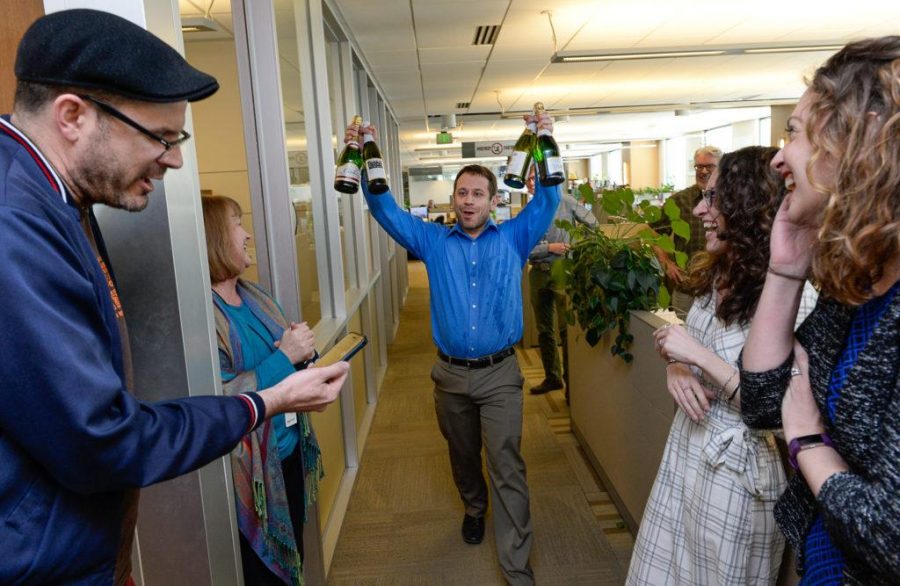On April 10, The Salt Lake Tribune made headlines as it won a Pulitzer Prize in Local Reporting for its investigative coverage of sexual assault on college campuses.
Rachel Piper, a former editor-in-chief of The Daily Utah Chronicle in 2010, worked on the year-long watchdog project.
“It’s pretty much the biggest prize you can win in journalism,” said Piper, digital news editor for The Salt Lake Tribune.
The prize, awarded by Columbia University in New York City, has 14 journalism categories. Out of over 2,400 entries, 21 are awarded.
The judges who awarded the honor to the Utah paper said the decision came from “a string of vivid reports revealing the perverse, punitive and cruel treatment given to sexual-assault victims at Brigham Young University, one of Utah’s most powerful institutions.”
The Tribune was up against news publications from all over the nation, including The New York Times and The Washington Post. This is the second time the paper has won the acclaimed honor in its 150-year existence.
“This does not mean that we haven’t done very good work for years,” said Matt Canham, senior managing editor at The Tribune. “This is just a very competitive prize.”
The last time the paper won the award was in 1957 for their coverage of a double plane crash over the Grand Canyon killing 128 people.
The firestorm of sexual assault coverage evoked with student Madi Barney coming forward in a public forum and sharing her experiences at Brigham Young University and being subjecting to honor code investigations. After Barney’s story, more came forward and opened up about their own stories.
“There were a lot of times last year where we felt like no one wanted to hear these stories anymore, or we got pressure from the church saying it was ‘gotcha journalism’ and refuting some things,” Piper said.
Piper said this award not only validates the work of these reporters but of investigative journalism in communities across the country.
“To have not only BYU change as a result of our stories, but to have other journalists recognize that these stories are important and deserve to be told, that feels pretty good,” Piper said.
By following the assault facts, the reporters pushed from story to story. The BYU case led to other colleges, and other stories of injustice.
“What’s amazing in this case is that there are so many important stories to tell,” Canham said.
Canham, who was also an editor at The Chronicle in 2002, became the senior managing editor of The Tribune in November, after the Pulitzer prize-winning story was written. He was not holding back in praising the award-winning work of his colleagues.
“These reporters are talented; they had all the skills necessary to pull this off. We needed to give them the space to do it, and my predecessors did,” Canham said.
Even with the emotionally taxing topic of sexual assault, and countless ethical decisions to make, the reporters kept going.
“These stories are so important, and you know you can’t mess up at all,” Piper said. “You can’t mess up a single period. You can’t mess up a semicolon, because it’s such a tough topic. You don’t want to have any mistakes, any issues.”
Canham expressed The Salt Lake Tribune will continue to seek out the truth and push for change.
“We see ourselves as investigative reporters,” Canham said, “whose job is to examine what the biggest institutions in this state do and make sure that they’re doing what they should.”
Canham continued, “Whether that’s politicians, major businesses, or the LDS church. That is the role of a media, especially a newspaper, to be those watchdogs, and we are very proud of that tradition. And this adds to that tradition greatly.”
m.mcdermott@dailyutahchronicle.com


